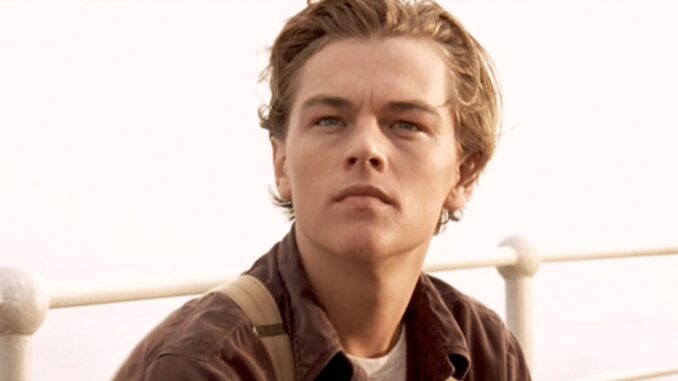
The One That Got Away: Matthew McConaughey and the Titanic's Door
The behemoth that was Titanic, James Cameron's epic tale of love and loss on the doomed ocean liner, etched itself into the cultural consciousness. Leonardo DiCaprio, with his boyish charm and burgeoning talent, became the face of Jack Dawson, the penniless artist who captured the heart of Kate Winslet's Rose DeWitt Bukater. Yet, in the realm of "what ifs" and Hollywood casting decisions, there exists a fascinating parallel universe where Matthew McConaughey, fresh off the success of "A Time to Kill," stands on the bow of the ship, yelling, "I'm the king of the world!" Why, then, did McConaughey not grace the Titanic stage, and what factors contributed to his decision to turn down the role that launched DiCaprio into superstardom?
McConaughey was undoubtedly on Cameron's radar. He was a rising star, embodying a rugged, charismatic Southern charm that Hollywood found increasingly appealing. His performance in "A Time to Kill" had cemented his status as a leading man, and the prospect of headlining a film of Titanic's scale was, on the surface, undeniably alluring. However, several key factors likely played into his eventual decision to pass on the role, a decision that, with the benefit of hindsight, reveals both the complexities of navigating a Hollywood career and the individual artistic sensibilities that guide an actor's choices.
Firstly, the financial aspect likely played a significant role. While the potential for global recognition was immense, the reported disparity in salaries offered to DiCaprio and McConaughey may have been a sticking point. Rumors suggest DiCaprio was offered a substantially larger sum, reflecting his already established box-office draw. McConaughey, while on the rise, likely felt undervalued, especially considering the film's ambitious scale and the potential for intense media scrutiny. In a cutthroat industry where perceived worth is paramount, accepting a lower salary could have been interpreted as a sign of weakness, potentially hindering future negotiations.
Secondly, the nature of the role itself might have been a contributing factor. Jack Dawson, while undeniably romantic, lacked the complexity and internal turmoil that often attracts actors seeking to showcase their dramatic range. He was, at his core, a charming, selfless artist, a canvas for Rose's personal growth and awakening. McConaughey, even in his early career, seemed drawn to characters with more nuanced motivations and internal conflicts. Roles in films like "Amistad" and "U-571," which followed his rise to fame, suggest a preference for characters grappling with moral dilemmas and personal struggles, a departure from the arguably more straightforward characterization of Jack Dawson. The prospect of being primarily a romantic lead, albeit in a massive blockbuster, might not have aligned with his aspirations for artistic growth and diversification.
Furthermore, the perceived risks associated with such a large-scale, commercially driven project could have influenced his decision. While box office success seemed almost guaranteed, "Titanic" was a gamble. Its budget was astronomical, and its historical setting presented logistical challenges. The potential for critical backlash was significant, and the pressure to deliver a performance that resonated with audiences worldwide was immense. For McConaughey, who was still establishing his brand and building a reputation for taking on diverse roles, aligning himself with such a high-stakes project might have felt like a premature leap into the deep end.
Finally, and perhaps most importantly, is the intangible element of personal intuition and artistic vision. Actors often make choices based on a gut feeling, a sense of connection to a particular role or project. McConaughey, known for his introspective and somewhat unconventional approach to acting, might simply not have felt the necessary spark with the character of Jack Dawson. Perhaps he envisioned the role differently than Cameron, or perhaps he simply felt that his strengths lay elsewhere. This internal compass, guided by a desire to pursue projects that resonate on a deeper level, is often the deciding factor in the myriad of choices that shape an actor's career.
In conclusion, while the image of Matthew McConaughey as Jack Dawson remains a tantalizing "what if," the reasons he likely turned down the role are complex and multifaceted. A combination of financial considerations, the nature of the character, the perceived risks of such a large-scale project, and, ultimately, his own artistic vision likely contributed to his decision. While Leonardo DiCaprio's portrayal of Jack Dawson will forever be etched in cinematic history, McConaughey's trajectory, leading to his eventual Oscar win for "Dallas Buyers Club," underscores the importance of individual choice and the pursuit of artistic fulfillment, even in the face of seemingly irresistible opportunities. He may not have yelled, "I'm the king of the world!" on the Titanic, but he ultimately carved his own path to Hollywood royalty, proving that sometimes, the role you don't take can be just as defining as the ones you do.